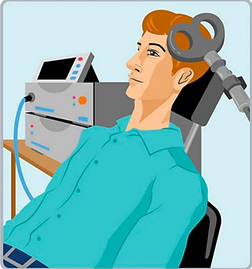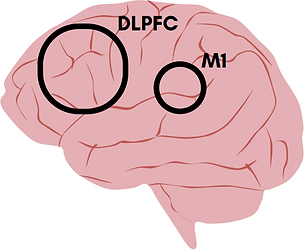Dementia Study
Interested in participating in new research exploring a potential treatment for dementia?
Learn about our study
The Human Neurophysiology and Imaging Lab at McMaster University is working with Ressam Gardens to develop brain stimulation research designed to help people with Alzheimer’s/Dementia.
We are interested in using brain stimulation to improve cognitive function & balance. We are finding ways to increase the longevity of the beneficial effects of brain stimulation.
To learn more, email: ramdek1@mcmaster.ca
This study has been reviewed by, and received ethics clearance by the
Hamilton Integrated Research Ethics Board (HIREB) under project #17300.
More information can be obtained by calling 647-991-9904


About Brain Stimulation
Repetitive transcranial magnetic stimulation (rTMS) is non-invasive brain stimulation. rTMS delivers magnetic pulses to the brain. The magnetic pulses stimulate neurons and change brain activity. rTMS has a tapping like sensation and is not painful. rTMS produces sounds similar to clicking.Current Findings
rTMS demonstrates better improvements in cognitive function and fewer adverse events in patients with Alzheimer’s/Dementia compared to medication (Wei et al., 2023). rTMS improves memory &executive function (Chou et al., 2020). 15, 548 individuals with Alzheimer’s/Dementia have participated in rTMS worldwide (Wei et al., 2023).
How rTMS works for Alzheimer’s
rTMS is delivered over the dorsolateral prefrontal cortex (DLPFC) or motor cortex (M1) which is an important brain area responsible for thinking and movement, respectively.What to expect?
- rTMS followed by 10 mins of balance training, every day for 14 days
- This is a randomized study, some participants will receive real rTMS and others will receive placebo rTMS treatment
- All participants will receive balance training
- Questionnaires
- Assessments of balance & cognition before and after the intervention
